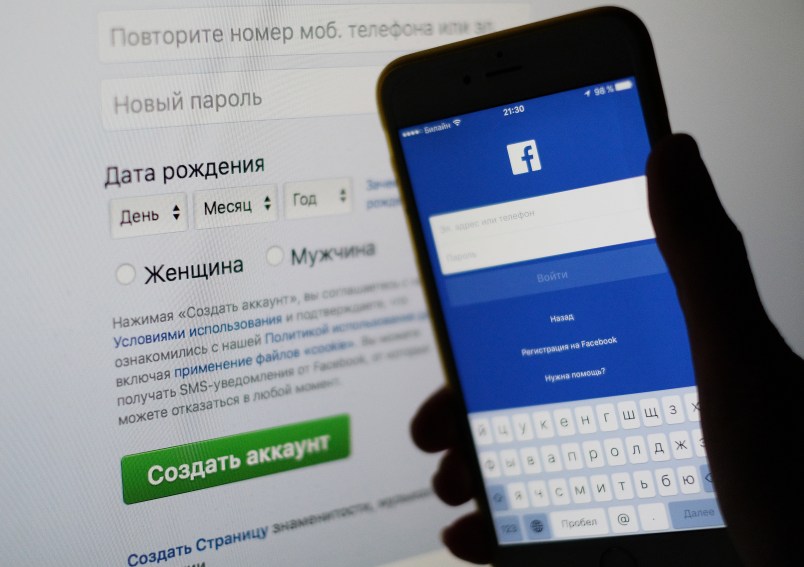Facebook initially withheld from Congress the thousands of ads it says were purchased by Kremlin-affiliated trolls because some of them contain photos stolen from other Facebook users, a congressional staffer briefed on the content of the ads told TPM on Friday.
The staffer said some of the ads include images of people who are essentially innocent bystanders to the propaganda war Russia waged across social media platforms during the 2016 campaign. The staffer suggested it may be possible for Congress to redact the ads to maintain the privacy of any users whose photos were stolen, in order to give the public access to some of the material Russian operators deployed to try to illegally influence voters.
A Facebook spokesman declined to comment to TPM.
In a reversal, the company announced Thursday that it had “reached out to congressional leadership to agree on a process and schedule to provide the content of these ads, along with related information, to congressional investigators.” Facebook already had handed over details of the ad buys, including copies of the ads themselves, to special counsel Robert Mueller.
On the company’s blog, general counsel Colin Stretch essentially handed the public disclosure matter over to Congress: “We believe Congress is best placed to use the information we and others provide to inform the public comprehensively and completely.”
The staffer TPM spoke with speculated that the stolen photos may have been used to build fake Facebook profiles—under the site’s default settings, every user’s profile photos, past and present, are not merely visible but also available for download by any other user.
There’s already some evidence that Russian operators built fake Facebook accounts using stolen photos: The New York Times found that pictures belonging to Charles David Costacurta, a Brazilian man, had been used to build a profile under the name “Melvin Redick” that used to disseminate Russian propaganda.
In Congress, there is a growing sense that the public should know how, specifically, it may have been affected by foreign interference on social media platforms.
Sen. Mark Warner (D-VA), vice chair of the Senate Intelligence Committee, went further: “An American can still figure out what content is being used on TV advertising,” he told CNN. “But in social media there’s no such requirement.”
Warner suggested the need for “a reform process” that would enable Americans “to know if there is foreign-sponsored content coming into their electoral process.” The senator is writing a bill that would require online media companies to publish disclosures similar to those mandated of broadcast television stations, which are individually licensed by the Federal Communications Commission.
Zuckerberg said publicly that he didn’t “think society should want us to “pre-screen political ads. Requiring the company to pre-screen any category of advertisement would necessitate a major increase in human staff, since, by Zuckerberg’s admission, most ad buying on Facebook is automated.







I feel like Facebook needs to be held responsible for some sort of failure to supervise. It’s like selling handguns to toddlers, you know you’re going the wrong thing, even if they can pony up the cash.
In other words: We don’t want to spend a penny on human capital screening ads that could be part of a cyber war against the government. Free Speech!
Petulant brats.
Facebook is media whether they admit it or not. If they don’t want to screen ads and put disclosure on the bottom of who is responsible for the ad than don’t take political ads.
A $300 Billion company can well afford to get some more humans involved.
I hate FB. It is a fiendish time suck. As if I don’t have enough techno crap in my life. It reminds me of the fad of “scrap booking”. I didn’t understand that either. But FB being used in such a Manchurian Candidate kind of way, well, that IS diabolical!